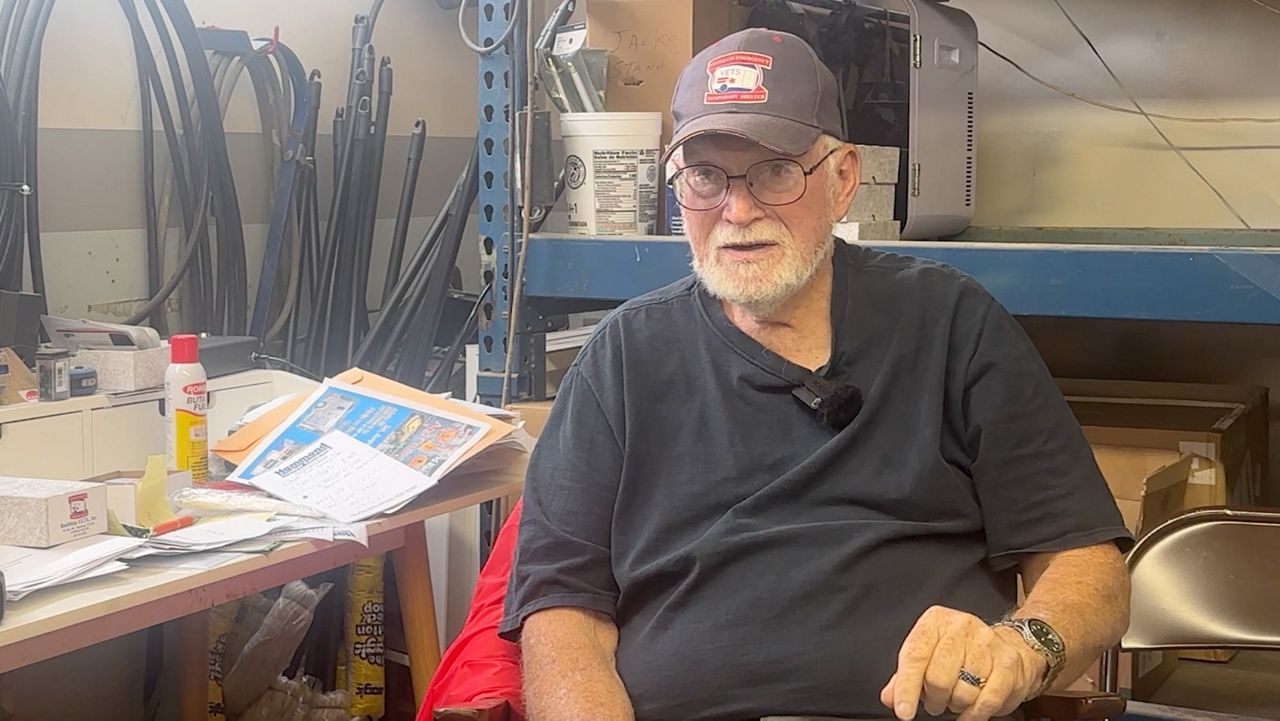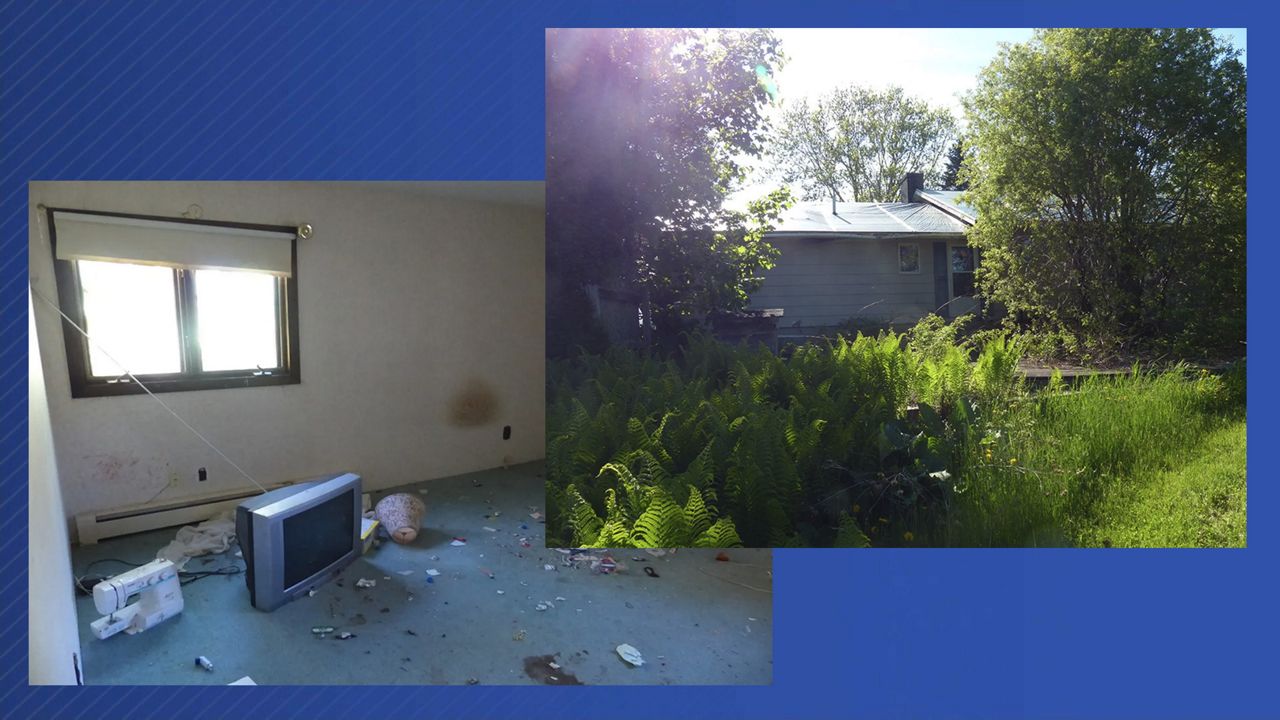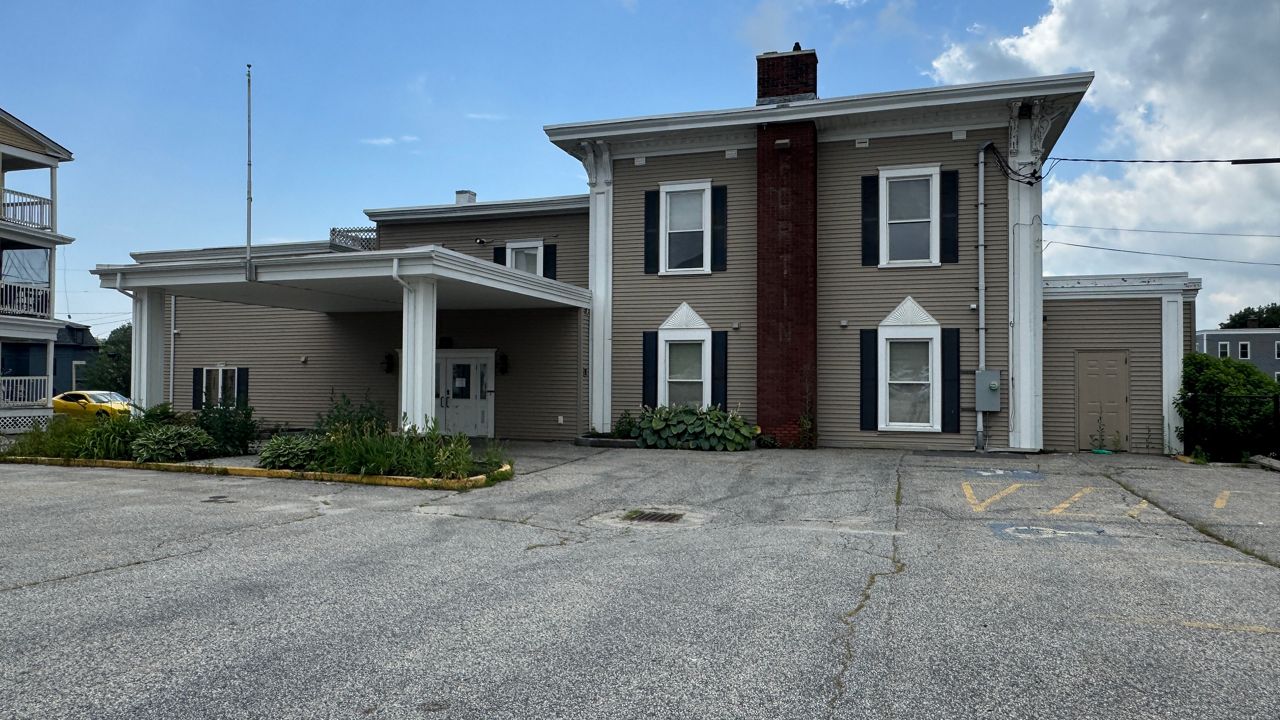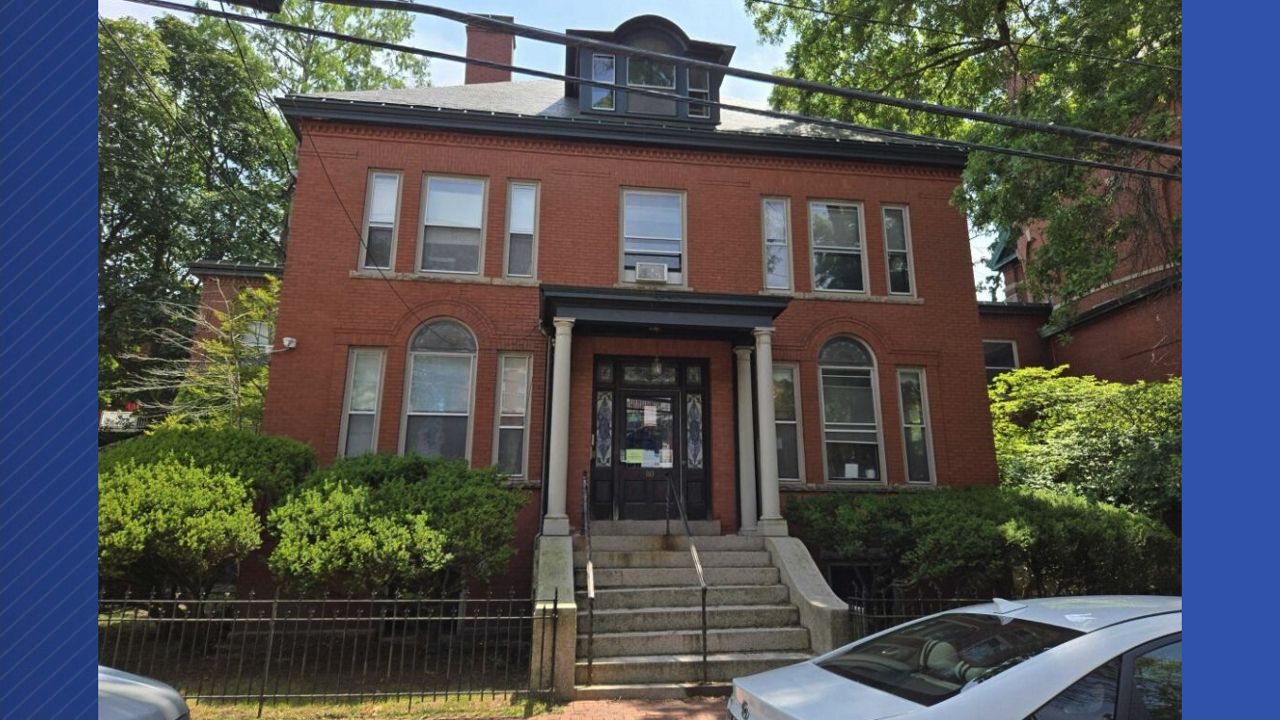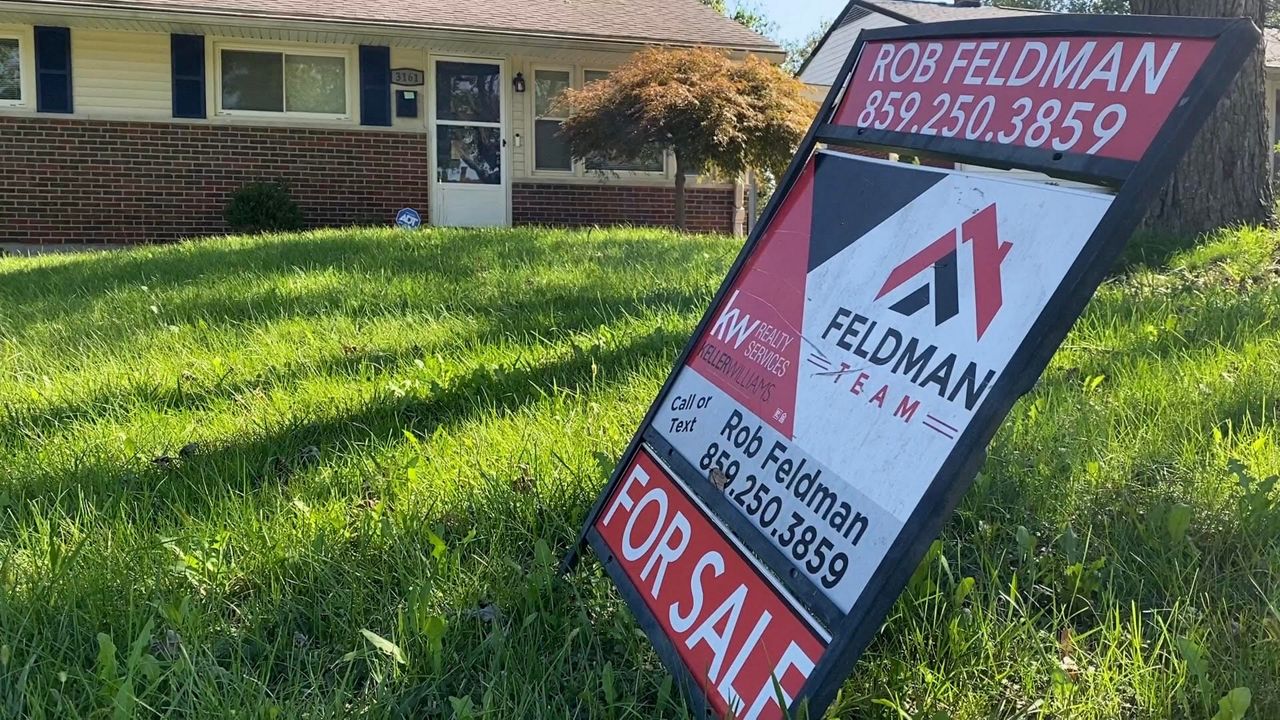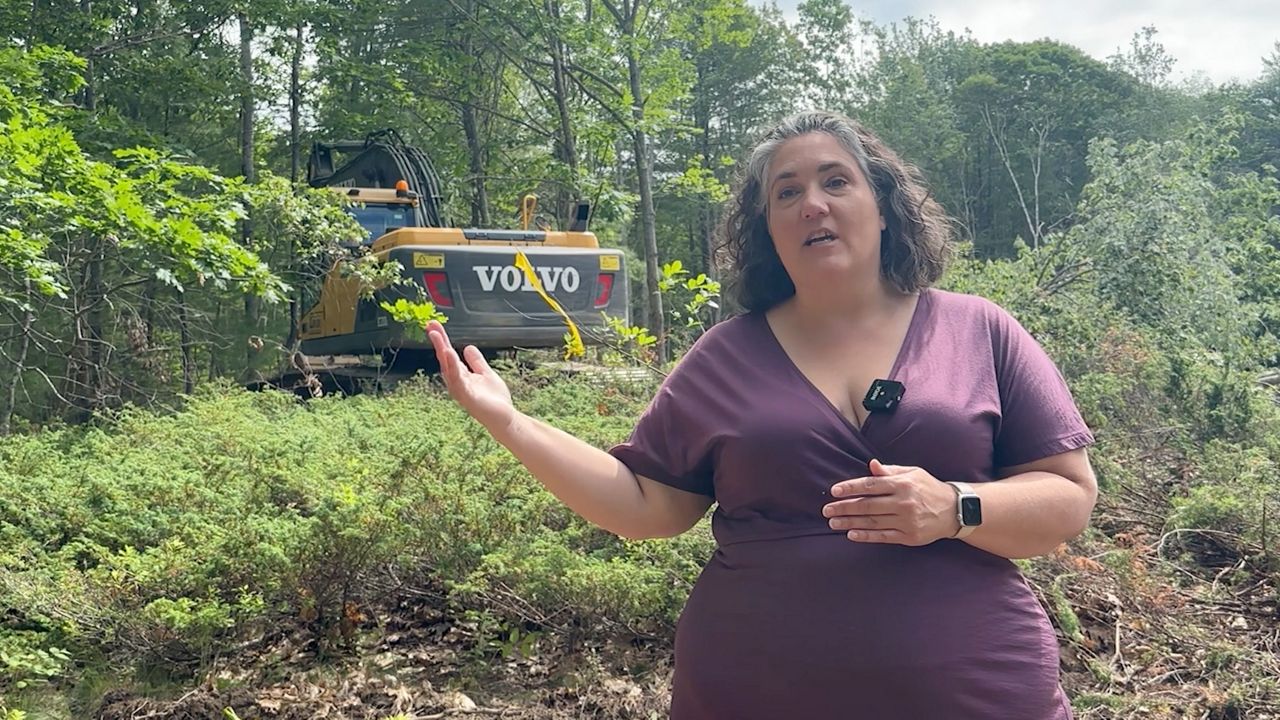In 2019, Ed Harmon, of Boothbay, was helping a friend who couldn’t drive get around to meetings of various groups that catered to the needs of homeless veterans.
The trips, Harmon said, got the retired contractor thinking about how to get homeless veterans into temporary housing.
“So I’m saying, ‘Well, why not a camper?’” he said.
That was five years ago. Today, the answer to that question is Boothbay VETS, a full-blown nonprofit run out of what used to be Harmon’s contractor’s workshop. He converted it into a factory that to date has produced 44 “campers,” or miniature trailers designed to offer homeless veterans in Maine an alternative to living on the street.
Harmon, 76, shows no signs of slowing down either. Driven by a passion to help his fellow veterans, he is planning to build even more trailers, along with larger ones to accommodate families. He even has a plan to collect a group of trailers into one location, which he called a “village.”
“I think outside the box,” he said. “I’ve been in construction all my life, OK, and to me, there’s a solution to any problem, I don’t care what it is. There is a solution. You just have to think outside the box.”
Harmon wants to help veterans because he is one himself. He doesn’t like to talk in detail about his service, but he said he was a US Navy sniper who earned a bronze star doing “multiple” tours in Vietnam.
Harmon has delivered the trailers to locations throughout the state. Boothbay VETS has brought trailers as far away as Caribou, Eastport, Lebanon, Kittery and Bridgewater.
“We will go anywhere for a veteran. Anywhere,” he said.
Each trailer is not just a container on wheels. Harmon has devoted thought and engineering to the project. The trailers use sophisticated heating systems that can run on electricity or portable propane tanks the size of tanks used by a backyard gas grill. The trailers also used advanced, energy-efficient insulation.
“They’re good to 50 below zero,” Harmon said. “How many houses can we say they’re good to 50 below zero?”
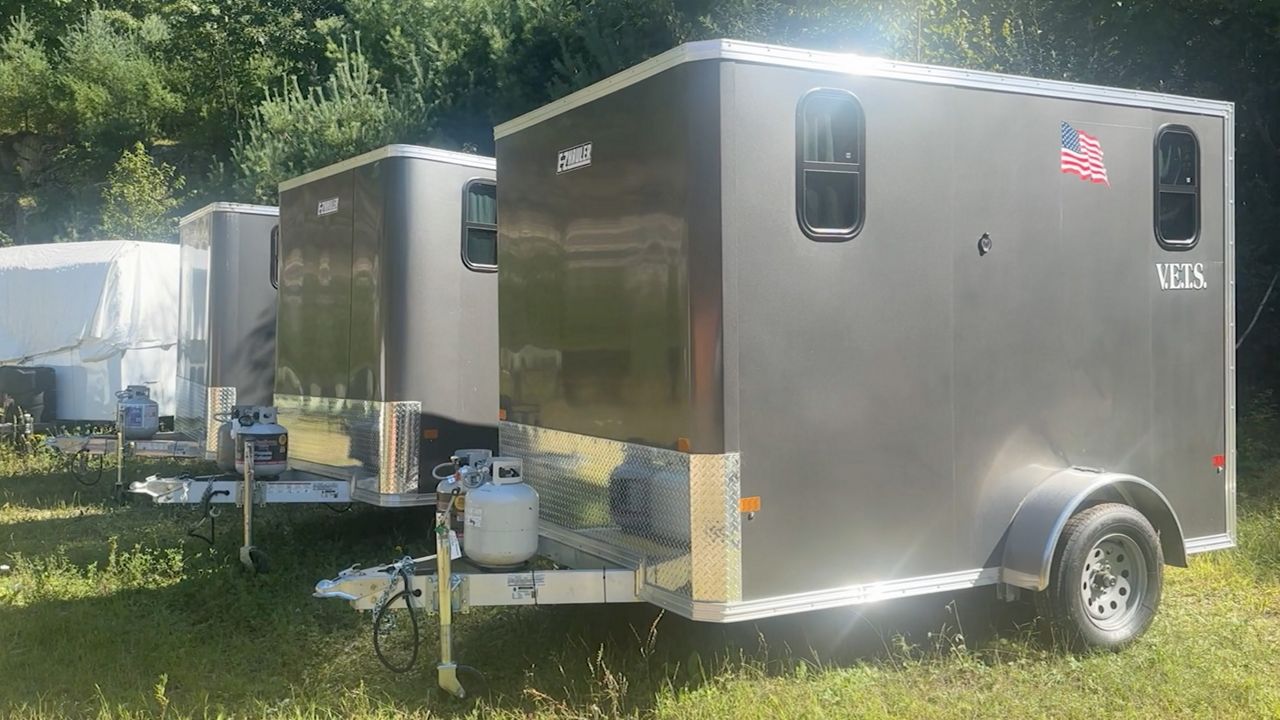
Inside, there are single beds, and in some cases bunk beds. When the trailer can be hooked up to electricity, there is a microwave oven and mini-refrigerator. Harmon said he stocks the trailers with non-perishable food items and a gift card to a local grocery store.
But it’s not just about food and shelter. Harmon said the nonprofit also connects homeless veterans with partner organizations and government entities such as the Veterans’ Administration. Through them, he said, the veterans get access to counseling, health care, assistance getting jobs and finding permanent housing. To date, he said, the nonprofit has helped 156 veterans find permanent homes.
And he hasn’t done it alone. A force of volunteers, including members of Maine’s congressional delegation, have helped him secure funding and run a tight operation. He was able to get official nonprofit status in 2020 with help from the office of Rep. Chellie Pingree (D-Maine).
The nonprofit has virtually no overhead. Part of the raw materials he uses comes from donations from local lumber yards and even big-box retailers. He already owns the property where his shop is located. All he pays for on the property itself is taxes, insurance and utilities, and he has received financial donations ranging from checks for thousands of dollars to people handing him $3 at the grocery store.
And he doesn’t pay a staff, either. He doesn’t need to – once word got around about what he was doing, he got plenty of help for free, from veterans and non-veterans alike.
Everyone from local chapters of the Elks to the Boy Scouts have volunteered, along with members of the Department of Veterans Affairs, including the director and assistant director themselves. Groups of prisoners – some of whom are also veterans – have volunteered. Some months, Harmon said, there are more than 40 people offering to help him build and distribute the trailers, many without even being asked.
“It’s amazing. It’s heart-lifting,” he said. “People are calling me all the time (to say) ‘schedule me.’”
Hard data on homelessness in general, let alone homeless veterans is difficult to come by in Maine. One of the most common tools is the point-in-time count, a survey produced by the state once a year.
Matthew Kennedy, Veterans Service Officer for homeless and incarcerated at the Maine Bureau of Veterans Services, said the 2024 point-in-time count indicated 115 homeless veterans in Maine. Right now, he said, his office is lending assistance to 113 homeless veterans. Those numbers have not changed drastically for his office in recent years.
“It’s been pretty consistent,” he said.
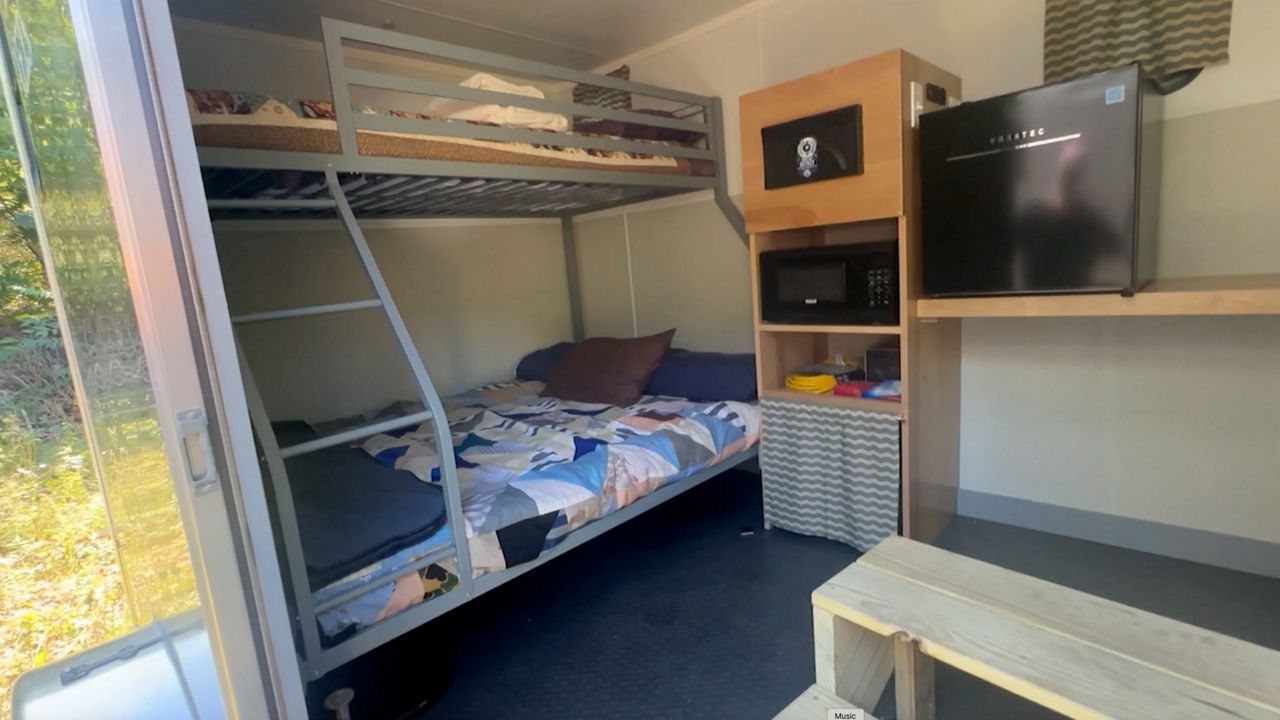
In Portland, Laura Clark, director of veterans housing services at Preble Street, said her program has noticed a spike in enrollment by homeless veterans following the coronavirus pandemic.
Measured by grant year, Clark said the program helped 299 homeless veterans from Oct. 1, 2022 through Sept. 30, 2023. Since the current grant year began on Oct. 1, 2023, she said, the program has enrolled 533 veterans, and there’s still time before the current grant year ends at the end of this month.
“The numbers have increase by a little less than double,” she said.
Part of the problem, Clark said, is the ongoing housing crisis, which makes it hard to find permanent homes for the homeless.
“The number of units that we have access to is really less than what we need,” she said.
Kennedy said another problem can be the common stigma around homelessness that chronically homeless people are addicted to drugs or suffering from mental illness. He acknowledged these can be factors in chronic homelessness among veterans, particularly given the prevalence of post-traumatic stress disorder.
But, he added, “There is no one-size-fits-all” cause of chronic homelessness among veterans.
Clark said her program’s long-term goal focuses more on permanent than temporary housing, but she praised Harmon’s initiative and the work Boothbay VETS is doing.
“When people are out camping, and they’re staying outside in a tent or they’re living in conditions that are really uninhabitable, it is really hard to have hope,” she said. “When people come into shelter, that is really what can be promoted as hope for a better future.”
Boothbay VETS has gotten some recent help from Sen. Angus King (D-Maine). In March, King worked to get a $339,000 grant for Boothbay VETS into the 2024 Appropriations Bill.
The money, Harmon said, will go right into building more trailers. He has 28 on tap, including some prototypes for larger portable trailers to accommodate couples and even families.
Harmon also wants to create a “village,” where a small group of trailers are clustered. Not only will the veterans living there be able to support each other, but it will make it easier for VA caseworkers to help.
In the meantime, Harmon said he is happy with the progress he and Boothbay VETS have made so far, and that he lives for the positive feedback from those he has helped.
“That’s what keeps me going,” Harmon said. “That helps me with my post-traumatic stress. That helps me because I want to help a brother or sister. I don’t care what the problem is. I care that you can survive, (that) I can keep you alive, (that) I can help you get on your feet. Everything can be solved.”
If you or someone you know is a homeless veteran in Maine, Boothbay VETS can be reached at their website by clicking here, or call Preble Street’s referral number for homeless veterans in Maine at (207) 956-6556.





